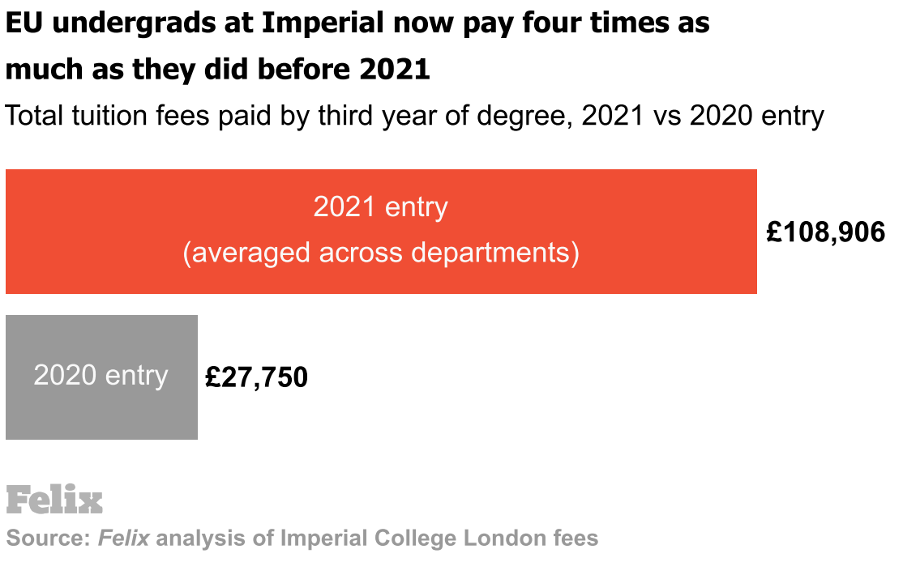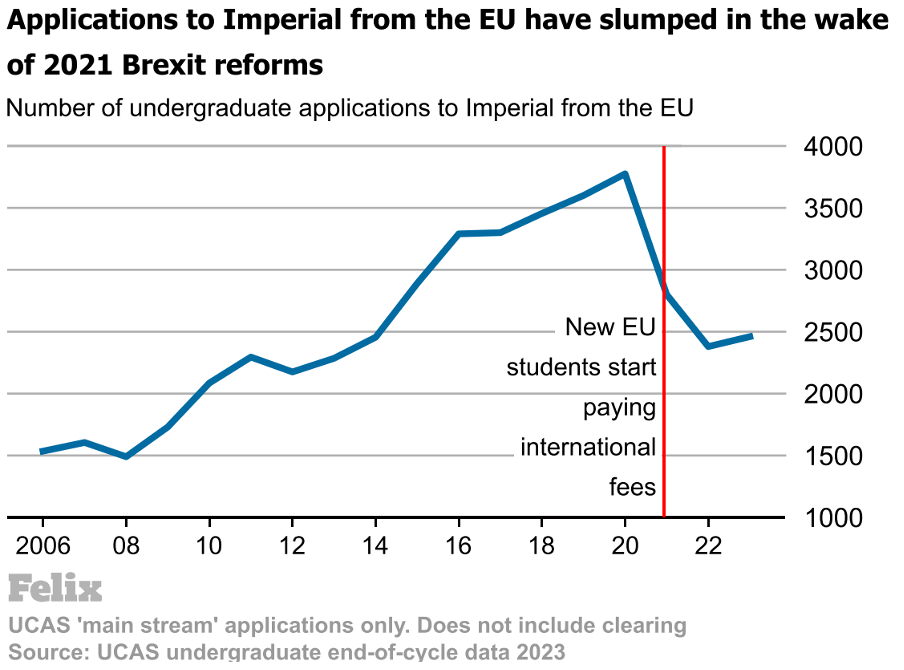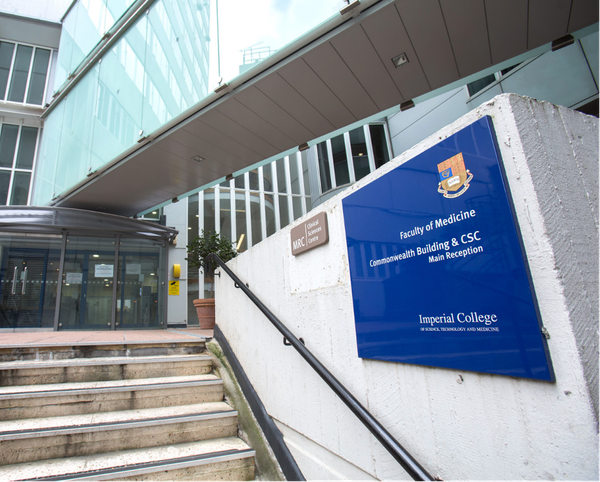EU students shun Imperial after 300% post-Brexit tuition fee rise
The fee-status changes have yet to dent Imperial’s tuition fee earnings.

EU applications to Imperial’s undergraduate programmes have fallen by a third since 2020, following a steep hike in tuition fees.
In the past, EU nationals paid the same fees as Home students. But under post-Brexit reforms, those who started courses in 2021/22 or later have been charged at significantly higher overseas-student rates.
An EU student who started at Imperial in 2021 will pay four times as much as an equivalent student who started a year earlier.
In 2021/22, the year in which the reforms took effect, the College reported a 55% drop in EU-student enrolment.
The fee-status changes have yet to dent Imperial’s total tuition fee earnings, which have risen by 19% since 2020/21 and accounted for just over a third of total income in the university’s most recent annual report.

In the last academic year, the College reaped a net gain from the reforms. 2023 UCAS undergraduate data revealed a slight uptick in EU applications to the university, after two consecutive years of decline. Imperial reported that the fee-status changes had driven an increase in the proportion of students paying international fees.
‘Overall student numbers only grew by 1% last year, so most of the increase in tuition income was a result of fee rate increases [for international students] and the change in mix between home and overseas students.’
Across the UK university sector, fees from overseas students subsidise those of Home students, which have been capped for a decade, and fixed at £9,250 since 2017.
The Russell Group – a consortium of which Imperial is a member – estimates that its universities make an average loss of £2,500 a year on Home students. The figure for Imperial is likely to be higher because it primarily offers science, medicine, and engineering degrees, which are more expensive to run.










